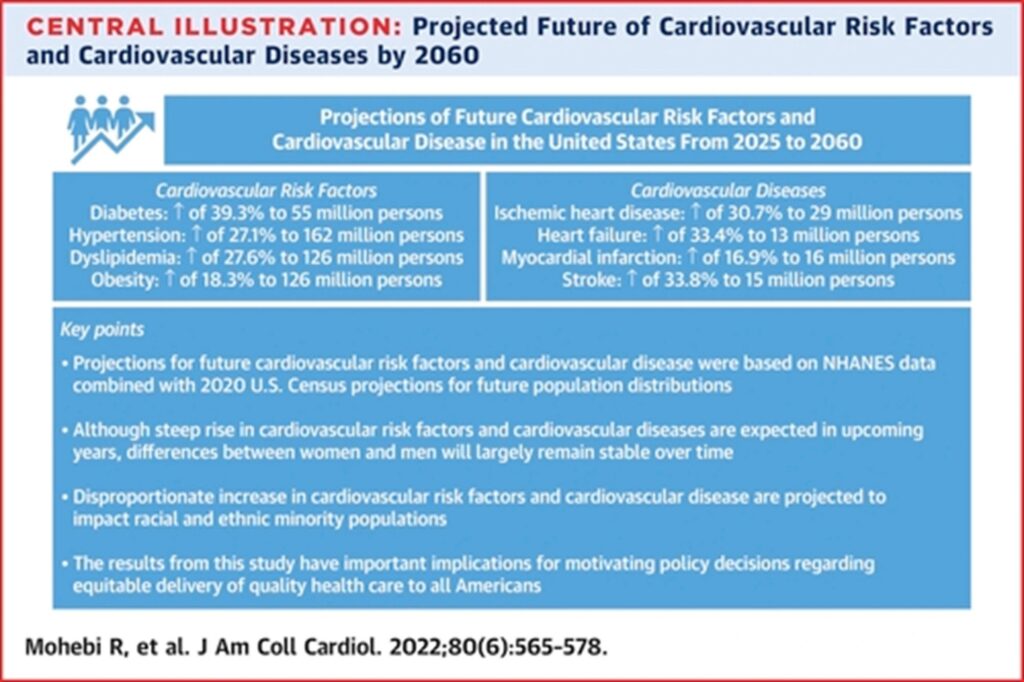Heart Disease Expected to Worsen Over Coming Decades
< back to the blog
Updated: Oct 14, 2022
A recent study published in the Journal of the American College of Cardiology projected a staggering increase in the number of people with cardiovascular disease and risk factors from 2025 – 2060, particularly in minority populations,.
The study combined demographic data from the U.S. Census Bureau with data regarding rates of cardiovascular risk factors and disease from the U.S. National Health and Nutrition Examination Survey (NHANES), broken into demographic subgroups using logistic regression models.

The findings are alarming, projecting large increases in the number of Americans with cardiovascular risk factors: diabetes mellitus (+15.4M), hypertension (+34.7M), dyslipidemia (+27.1M), and obesity (+19.4M).
This corresponds with a surge in the number of people with cardiovascular disease: ischemic heart disease (+6.8M), heart failure (+3.2M), myocardial infarction (+3.7M), and stroke (+3.7M).
While no significant differences between the sexes was projected, there were huge disparities among racial and ethnic groups, with Black and Hispanic individuals expected to be disproportionately affected.
In fact, the number of minority patients with cardiovascular disease will be almost as high as that of White or Caucasian patients by the year 2060.
This highlights the need for affordable and accessible health care as a public health policy.
The research group, which included James Januzzi, MD, of Massachusetts General Hospital and Harvard Medical School in Boston, wrote “Emphasis on education regarding CV risk factors, improving access to quality health care, and facilitating lower cost access to effective therapies for treatment of CV risk factors may stem the rising tide of CV disease in at-risk individuals.”

Prevencio is revolutionizing cardiovascular care with affordable, accessible, and highly accurate diagnostic testing.
Prevencio’s HART AI-driven blood tests are a breakthrough in cardiac care and prevention, employing AI to produce test panels of multiple proteins and clinical variables, combined with an algorithm to create a cardiovascular score.
To learn more or order test kits, visit prevenciomed.com, or call (425) 576-1200.


